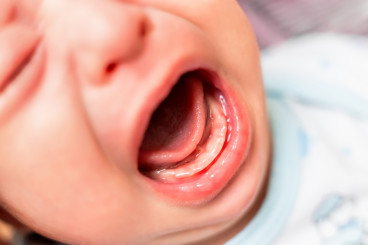The Impact of Stress on Oral Health: Clenching, Grinding, and Beyond
From unconscious teeth grinding to jaw clenching, stress manifests in various ways that can seriously impact oral health. Understanding these connections and implementing practical solutions can help protect your dental well-being while managing daily stressors. Discover the vital link between stress and oral health, plus affordable ways to address these concerns.

Did you know that your teeth are paying the price for a stressful lifestyle? In today's fast-paced world, stress has become an unavoidable part of daily life, affecting not just mental and emotional well-being but also physical health – including oral health. The connection between stress and dental problems is more significant than many realize, with implications ranging from minor discomfort to serious dental issues that require professional intervention.
The relationship between stress and oral health operates through multiple pathways, both direct and indirect. When stress levels rise, the body responds by releasing cortisol and other hormones that can affect everything from gum health to muscle tension in the jaw. One of the most common manifestations of stress in oral health is bruxism – the unconscious grinding or clenching of teeth. This condition, which typically occurs during sleep but can also happen during waking hours, can lead to worn tooth enamel, cracked or chipped teeth, increased sensitivity, and even tooth loosening over time.
Negative effects of stress on the temporomandibular joint (TMJ)
The temporomandibular joint (TMJ) often bears the brunt of stress-related behaviors. This crucial joint, which connects the jawbone to the skull, can become strained and damaged through constant clenching and grinding. The resulting TMJ disorders can cause significant discomfort, including jaw pain and stiffness, clicking or popping sounds when opening the mouth, difficulty chewing, and even referred pain in the form of earaches and headaches.
Beyond the mechanical stress on teeth and jaw joints, psychological stress can also compromise the immune system, making it harder for the body to fight off infections, including gum disease. Stressed individuals often experience decreased saliva production, which plays a crucial role in maintaining oral health by washing away bacteria and neutralizing acids in the mouth. The combination of reduced immune function and decreased saliva production creates an environment where oral health problems can develop and progress more rapidly.
Stressed behavior impacting oral health
Stress also influences behavioral patterns that can indirectly impact oral health. When under pressure, many people find themselves neglecting their regular oral hygiene routines, making poor dietary choices, or turning to habits like smoking or excessive alcohol consumption – all of which can have detrimental effects on oral health. Additionally, stress often leads to increased consumption of sugary foods and caffeinated beverages, which can contribute to tooth decay and enamel erosion.
Managing oral health under stress requires a comprehensive approach that addresses both the physical manifestations of stress and its underlying causes. Regular dental check-ups become even more crucial during stressful periods, as professional monitoring can help identify and address problems before they become severe. For those who experience bruxism, custom-fitted night guards can provide essential protection against tooth damage and help alleviate TMJ symptoms.
How to protect your teeth during stressful times
However, protecting oral health during stressful times isn't just about dental interventions. Stress management techniques such as mindfulness, meditation, regular exercise, and adequate sleep play vital roles in reducing the physical impact of stress on oral health. These practices can help reduce muscle tension in the jaw and face, decrease the frequency of teeth grinding, and improve overall well-being.
Early recognition of stress-related oral health issues is crucial for preventing long-term damage. Warning signs such as morning jaw pain, headaches, worn or sensitive teeth, changes in bite alignment, and gum inflammation should not be ignored. Without proper management, these issues can lead to permanent tooth damage, chronic TMJ disorders, and the need for extensive dental work.
Prevention remains the best strategy for protecting oral health from the effects of stress. This includes maintaining consistent oral hygiene practices even during stressful periods, staying hydrated, eating a balanced diet, and seeking professional help when needed.
Here are some additional tips to keep yours stress levels and dental health in check:
• Establish a consistent bedtime routine to improve sleep quality and reduce nighttime teeth grinding
• Practice jaw relaxation exercises throughout the day, especially during high-stress periods
• Consider wearing a custom-fitted night guard to protect teeth from grinding during sleep
• Limit caffeine and alcohol intake, which can increase muscle tension and dehydration
• Incorporate vitamin-rich foods that support dental health (calcium, vitamin D, vitamin C)
• Maintain regular exercise to reduce overall stress levels and promote better sleep
Regular dental check-ups can catch early signs of stress-related damage and provide opportunities for intervention before problems become severe.
Conclusion - Relieving stress to improve oral health
The impact of stress on oral health is significant and far-reaching, but it doesn't have to be inevitable. By understanding the connection between stress and oral health, implementing effective stress management strategies, and maintaining good oral hygiene practices, it's possible to protect dental health even during life's most challenging periods.
Don't let stress-related dental issues strain your budget. Visit Dr. BestPrice Dental Auction Site to find affordable dental care solutions and significant savings on dental treatments. Compare prices, find dental discounts, and secure the best deals on quality dental care in your area. Your smile – and your wallet – will thank you.



